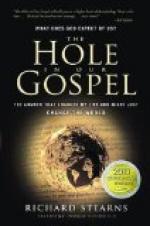LOVELACE
Just after Surrey, for the third time, had passed through the avenue of trees, two men appeared in it, earnestly conversing. One, the older, was the same who had met Willie as he was going out, and had examined him with such curious interest. The other, in feature, form, and bearing, was so absolutely the counterpart of his companion that it was easy to recognize in them father and son,—a father and son whom it would be hard to match. “The finest type of the Anglo-Saxon race I have seen from America,” was the verdict pronounced upon Mr. Ercildoune, when he was a young man studying abroad, by an enthusiastic and nationally ignorant Englishman; “but then, sir,” he added, “what very dark complexions you Americans have! Is it universal?”
“By no means, sir,” was Mr. Ercildoune’s reply. “There are some exceedingly fine ones among my countrymen. I come from the South: that is a bad climate for the tint of the skin.”
“Is it so?” exclaimed John Bull,—“worse than the North?”
“Very much worse, sir, in more ways than one.”
Perhaps Robert Ercildoune was a trifle fairer than his father, but there was still perceptible the shade which marked him as effectually an outcast from the freedom of American society, and the rights of American citizenship, as though it had been the badge of crime or the strait jacket of a madman. Something of this was manifested in the conversation in which the two were engaged.
“It is folly, Robert, for you to carry your refinement and culture into the ranks as a common soldier, to fight and to die, without thanks. You are made of too good stuff to serve simply as food for powder.”
“Better men than I, father, have gone there, and are there to-day; men in every way superior to me.”
“Perhaps,—yes, if you will have it so. But what are they? white men, fighting for their own country and flag, for their own rights of manhood and citizenship, for a present for themselves and a future for their children, for honor and fame. What is there for you?”
“For one thing, just that of which you spoke. Perhaps not a present for me, but certainly a future for those that come after.”
“A future! How are you to know? what warrant or guarantee have you for any such future? Do you judge by the past? by the signs of to-day? I tell you this American nation will resort to any means—will pledge anything, by word or implication—to secure the end for which it fights; and will break its pledges just so soon as it can, and with whomsoever it can with impunity. You, and your children, and your children’s children after you, will go to the wall unless it has need of you in the arena.”
“I do not think so. This whole nation is learning, through pain and loss, the lesson of justice; of expediency, doubtless, but still of justice; and I do not think it will be forgotten when the war is ended. This is our time to wipe off a thousand stigmas of contempt and reproach: this”—




